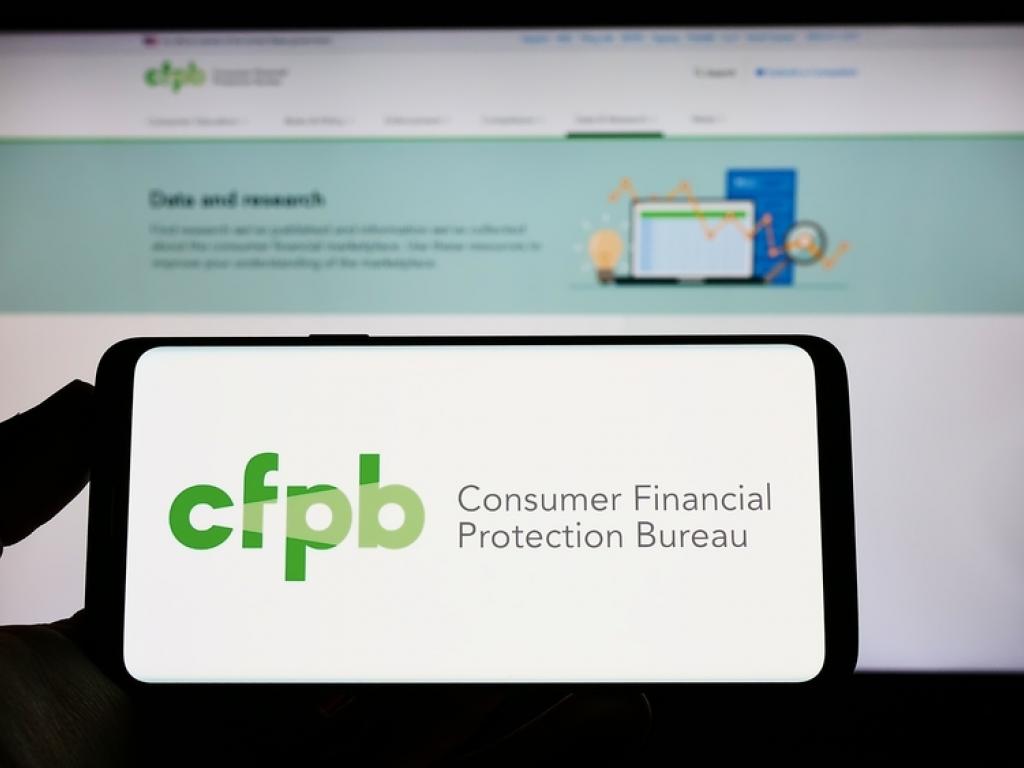Regulatory Freeze At CFPB: These ETFs Could Gain As Oversight Weakens
Author: Chandrima Sanyal | February 11, 2025 03:39pm
The Consumer Financial Protection Bureau (CFPB) has been put on ice. Staffers have been told to halt all work, and the agency's Washington headquarters has reportedly been shut down.
While this unprecedented move raises serious concerns about consumer rights, it also presents a potential opportunity for investors. ETFs with significant exposure to banks, payday lenders, and credit reporting agencies may benefit if looser regulations translate into higher profit margins.
Also Read: Bessent Freezes Consumer Financial Protection Bureau Work Leaving Lawsuits Against JPMorgan, Bank Of America, Capital One In Limbo
Banking & Financial Sector ETFs: The Biggest Beneficiaries?
Big banks have frequently clashed with the CFPB over issues ranging from overdraft fees to consumer lending practices. With the watchdog out of commission, major financial institutions could see reduced compliance costs and potentially higher profits.
Investors looking to capitalize on this regulatory shift might consider ETFs with heavy bank exposure, such as:
- Financial Select Sector SPDR Fund (NYSE:XLF): This fund tracks large U.S. financial institutions, including JPMorgan Chase (NYSE:JPM), Bank of America (NYSE:BAC), and Citigroup (NYSE:C).
- Invesco KBW Bank ETF (NASDAQ:KBWB): This ETF could benefit if regulatory rollbacks allow banks to expand lending operations with fewer restrictions. Goldman Sachs (NYSE:GS), JPMorgan, Morgan Stanley (NYSE:MS), Bank Of America and Wells Fargo & Co. (NYSE:WFC) are among the top holdings of the ETF.
- iShares U.S. Financials ETF (NYSE:IYF): Another broad financial sector play, IYF provides exposure to insurance firms, banks, and capital markets. Among its top holdings are S&P Global (NYSE:SPGI), BlackRock Inc. (NYSE:BLK) and Wells Fargo.
Also Read: US Lenders File Joint Lawsuit Against Consumer Finance Watchdog For Capping Overdraft Fees
FinTech & Alternative Lending: Risky Yet Promising
The CFPB has been a thorn in the side of payday lenders and fintech firms, often cracking down on predatory lending practices. With enforcement on hold, companies like LendingClub (NYSE:LC) may operate with fewer regulatory headaches. That makes fintech-focused ETFs worth watching, such as:
- Global X FinTech ETF (NASDAQ:FINX): This fund invests in innovative financial technology firms that could benefit from a more relaxed regulatory environment. Fidelity National Info (NYSE:FIS) and Fiserv (NYSE:FI) sit at the top of the portfolio distribution.
- iShares US Small Cap Value Factor ETF (BATS:SVAL): It is an equal-weighted equity index tracking the Russell 2000 Focused Value Select Index which measures the performance of small-cap U.S. companies including LendingClub.
The Background
The CFPB, created in the aftermath of the 2008 financial crisis, has been — according to advocates — a necessary watchdog keeping financial institutions in check.
For example, the CFPB has recovered over $17.5 billion for consumers affected by fraudulent or predatory practices.
It has also established rules to limit overdraft fees and reduce credit card late fees, aiming to protect consumers from excessive charges.
Meanwhile, critics — especially from the banking industry (i.e., JPMorgan Chase CEO Jamie Dimon) — argue it’s a regulatory burden.
Now, with an abrupt directive for staff to ‘stand down' and stop all work, the agency's future is uncertain.
Read Next:
Photo: Shutterstock
Posted In: BAC BLK C EFX FI FINX FIS GS IYF JPM KBWB LC MS SPGI SVAL WFC XLF





